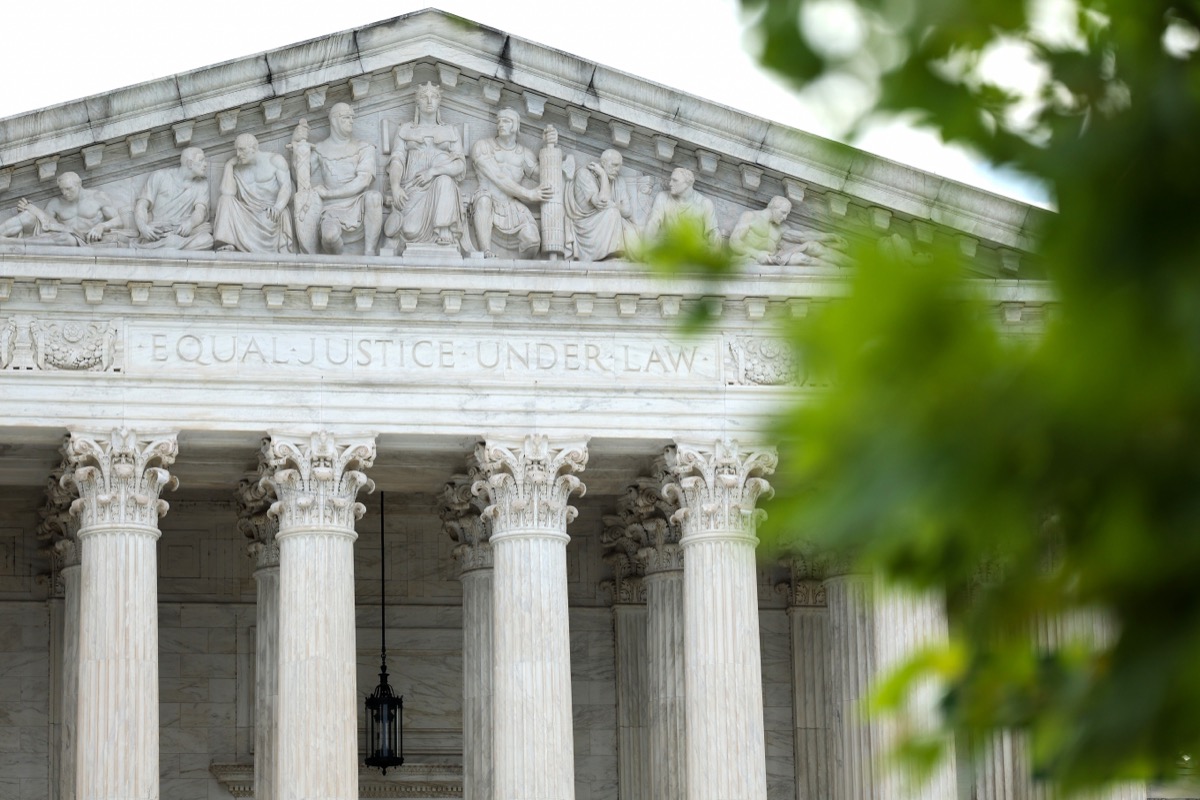The Supreme Court Decided To Prioritize ‘Free Speech’ Over Protecting Victims of Stalking

The Supreme Court has come out with many awful rulings over the past few weeks. But one in particular—the case of Counterman v. Colorado—has somewhat flown under the radar, which is horrible because it’s one of the worst decisions made this term.
Some background on Counterman v. Colorado: Colorado singer Coles Whalen was harassed by Billy Raymond Counterman for years over Facebook Messenger. Eventually, Counterman was arrested and convicted of stalking, and in 2016 he was sentenced to four and a half years in prison.
Despite the conviction, Counterman has continued to defend his actions, insisting the harassment qualified as protected speech. The whole case hinges on whether the “Free Speech Clause of the First Amendment requires proof of intent in order for a person to be convicted for threats under the true threat doctrine.”
Which quite frankly, is ridiculous.
Intent can be very difficult to prove and often relies on circumstantial evidence, as it can be difficult to collect testimony. Besides that, if a person posts about wanting to commit violence against a public figure like the president, then intent rarely matters to the Secret Service or federal investigators.
Counterman’s conviction was upheld by an appeals court and the state Supreme Court declined to hear the case. Nevertheless, the case was taken up by the U.S. Supreme Court, where the judges rule 7-2 in favor of Counterman.
Far-Reaching Implications
This case has devastating implications for the future of stalking victims, including the original victim of the case.
Whalen herself is shocked that the court case has gone on this long and has said, “I just can’t believe that anybody would question whether or not this is a true threat.” She has been dealing with his harassment for over a decade at this point, and the courts just told her that what Counterman did to her wasn’t stalking nor was it illegal. Which could make it harder for her to get protection against Counterman in the future.
Unfortunately, Whalen’s experience is not out of the ordinary for many stalking victims; Whalen is just one of the millions of women every year who face stalking, harassment, or targeted violence. Even in instances where women do report their stalkers, police would rarely take action at all (18.8% of reported cases) and only sometimes make arrests (about 7% of reported cases). Even worse when you consider how around 54% of female homicide victims reported being stalked before they were killed.
Worst of all, some lawyers are actually praising the decision: Brian Hauss, an attorney with the ACLU, reportedly applauded the court for ensuring that “inadvertently threatening speech cannot be criminalized” and for “provid[ing] essential breathing room for public debate.” Similarly, Foundation for Individual Rights and Expression (FIRE) attorney Jay Diaz was reportedly glad that “fewer prosecutors will be able to criminalize speech tomorrow than was possible yesterday.”
“Free Speech”
Seriously though, why are all of these lawyers hung up on the ‘Free Speech’ issue?!
Counterman’s messages were not blanket statements made on a public forum, they were private messages that targeted at one woman. Among included, among other things, informing her of “physical sightings” he’d had of her without her knowledge, angry expletive-filled messages, and at least one telling her to “die,” according to Colorado Public Radio. They caused her so much emotional distress and fear that she left the state and changed careers, since she found performing in dark venues where she couldn’t see the audience so terrifying.
Despite all of this, the Supreme Court’s majority opinion focused on how a “speaker’s fear of mistaking whether a statement is a threat, his fear of the legal system getting that judgment wrong, his fear, in any event, of incurring legal costs—all those may lead him to swallow words that are in fact not true threats.”
This statement is horrifically reminiscent of men who argued that they are now afraid to talk to women after #MeToo. It seems that the Supreme Court would rather defend men’s right to harass than women’s right to be safe.
Even worse, is that the Supreme Court has announced that next session, they’ll be hearing a case regarding domestic abusers’ Second Amendment right to bear arms. Three guesses on how they’ll rule on that but based on the court’s previous 2A rulings, you won’t need that many.
If you are a victim of stalking, the CDC and the Victim Connect Resource Center have resources that may help you. I know it’s not as effective as a court order or actual police aid, but it can at least help you be aware of your options.
(featured image: Kevin Dietsch/Getty Images)
Have a tip we should know? tips@themarysue.com